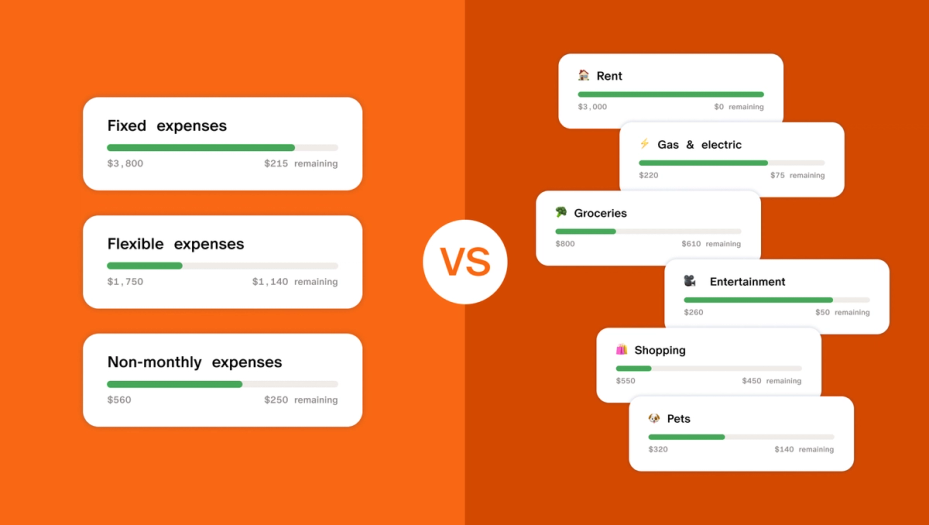You may think of “estate planning” as the purview of the super wealthy who have to allocate tens of millions of dollars — usually via a dramatic and tense meeting in a Victorian mansion led by a lawyer.

(A very dramatic will reading in the movie Knives Out)
Sure, that can be part of estate planning, I suppose. But for most of us, estates and wills are about removing the uncertainty for our family members. With proper estate planning you:
- Ensure your family has peace of mind knowing exactly how to access and distribute your assets.
- Avoid having your assets subject to “probate” and other laws and procedures that may not align with your wishes.CCommunicate your values and wishes for important issues like guardianship of your children.
- In some cases, protect your assets from unnecessary taxes and penalties.
“People think that you need millions of dollars before you need an estate plan. And that's absolutely incorrect,” says Donovan Carson, Wealth Manager at Carson Capital, which runs its own course on estate planning.
Only 26% of Americans have an estate plan, which means most families are not prepared for major changes to their family.
In this article, we’ll review the basics to consider when setting up your estate so you can positively impact your family long after you pass away.
The Basics of Estate Planning
There are terms that are important to understand when discussing estate planning with your family or financial advisor. Some are often used interchangeability in casual conversion, but they have specific and often legal meanings.
- A will or “last will and testament” is a legal document containing instructions for what to do with your assets after you pass away. A “living will” is a document that applies if you are alive but unable to communicate your intentions.
- A trust is a legal entity that “holds” various assets. A “trustee” is someone who administers the trust. There are many different types (including trusts for pets!). A will often directs what should be done with the assets held in a trust.
- An estate is the sum of all your debts, properties, assets, and holdings. Basically, it’s all the stuff you owe and own.
- Probate is the process of the state verifying your will and deciding how to distribute your assets after you pass. One benefit of savvy estate planning is that it ensures your assets are not subject to probate and are not made public. Each state has its own laws to consider regarding this process.
The Checklist
We spoke to financial advisors and asked them for a basic checklist to get you started. These are meant to set you in the right direction, but be sure to speak to your advisor or attorney to better understand what works with your own unique situation and family dynamics.
“If you have a pretty good idea of what you want to do with your legacy, most people can set this up in about 30 to 45 minutes,” says Donovan.
#1 - Create a “living will”
A living will is the document your family can turn to should you be unable to communicate with them, typically for medical reasons. The primary consideration of a living will is establishing a healthcare power of attorney, someone who can make health decisions for you. This is especially important if you are not married to your partner.
You may also want to establish power of attorney, guardianship of your children, and other directions to follow if you are incapacitated.
#2 - Create a last will and testament
Your last will and testament, usually referred to as your “will” is the document that details what should happen to your estate after you pass away. There are online services that help you do this yourself or you can go through an attorney. Your will could include:
- An “executor” to carry out the will
- Guardianship for your children and pets
- Desired allocation of assets and money
- Wishes for funeral services and, if applicable, funding sources
Laws vary by state, but generally your will must be signed by you and one or more witnesses. There are joint wills that you can create with your spouse with different restrictions.
#3 - Create a trust
We will cover the full details of trusts in a future article. But here are some basics to set up. First, choose which type of trust you’d like to create. In most cases, you’ll need to name beneficiaries, or people that benefit from the trust. And a trustee to administer it. Cornell Law School has an exhaustive list.
Second, create a trust and procure a trust identification number — an identifying number used by the IRS similar to an EIN or social security number. While there are self-serve services that allow you to do this, most advisors suggest speaking to an attorney.
Third, retitle your assets in the name of your trust. This ensures they can more easily change hands. This includes properties, vehicles, bank accounts, and brokerage accounts.
There are some accounts you won’t be able to retitle, such as retirement accounts. For those you can change the beneficiary to be your trust instead.
Some questions it helps to have answers to:
- When do you want your beneficiaries to receive the assets? For example, you may not want your children to receive a windfall at 18.
- Who do you want to be trustee, the person who can make decisions on behalf of the trust?
#4 - Create a “letter of instruction”
Consider this the “table of contents” to your estate. The death of a family member is a chaotic and emotional time. Write a letter sharing where your beneficiaries can find all of the needed documents to manage your estate. Include:
- Lawyers or financial professionals to contact
- Location of passwords and other account information
- Any trusts you’ve established
- The location of your will
Communicate to your family where this letter is, such as in a safety deposit box, household filing cabinet, or locked drawer so they know what to do should something happen to you.
“You must tell people where all this stuff is. Otherwise, it’s useless to them,” says Rachel Lawerence, Head of Advice at Monarch.
Other Estate Planning Tips
Do it early. If your situation is simple like, say, you receive all of your income from a single W2 and you rent your home — it may be easy to think that there’s nothing worth planning ahead for. Chances are you are still accumulating wealth and building your family.
“Most people think, ‘I want to have more wealth and something to actually protect,’” says Donnovan. “It's a good idea to just set up the structure right from the beginning so that you don't have to redo everything when your financial life gets more complicated.”
Don’t just pass on the assets, pass on your values. Donovan suggests a “legacy letter”, writing something to your children and grandchildren about your life, your values, what you hope to do with what you pass on, and any other loving words to give them comfort in a troubling time.
“You need to make sure you not only give your kids the money, but the values it took to create that money in the first place,” says Donovan. “I've seen people receive that legacy letter after the fact and be extremely grateful.”
“The best gift you can give to your family is to get your financial house in order.”






